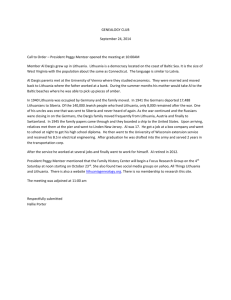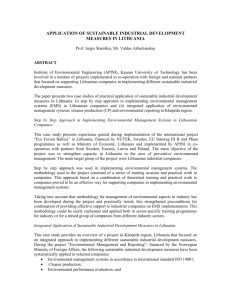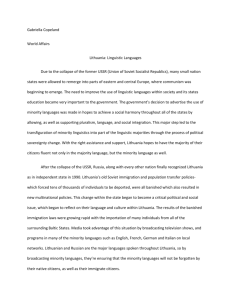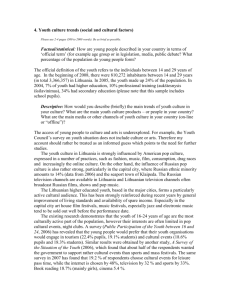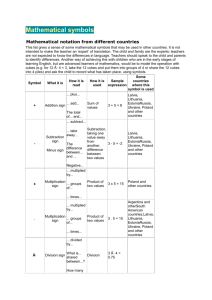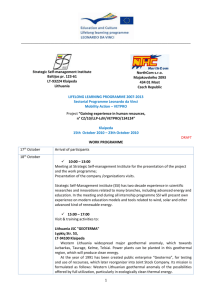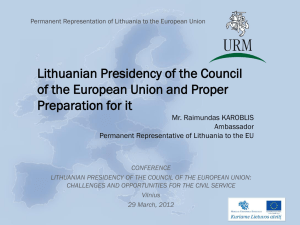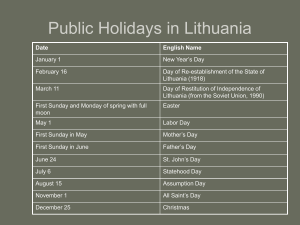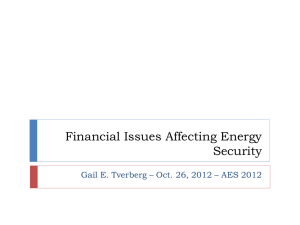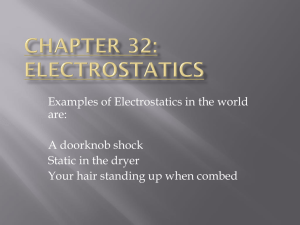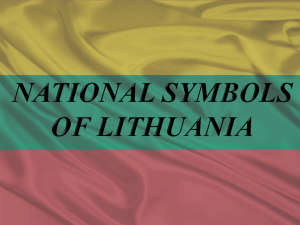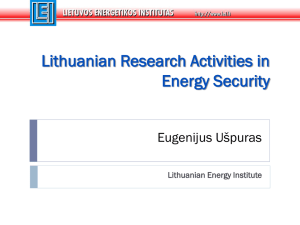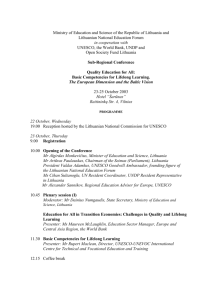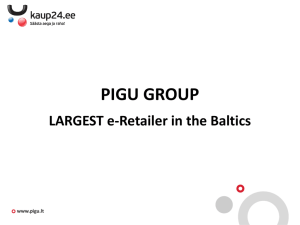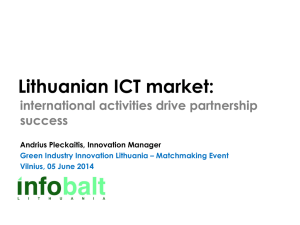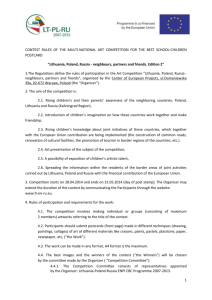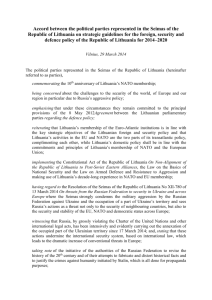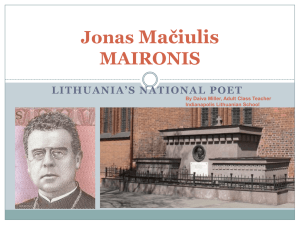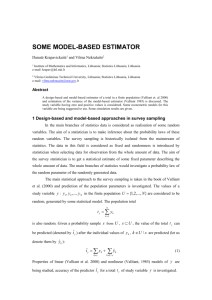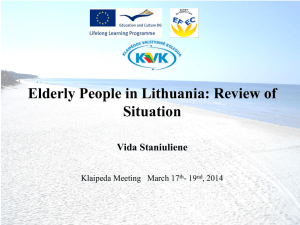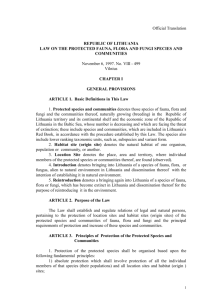Lithuania
advertisement
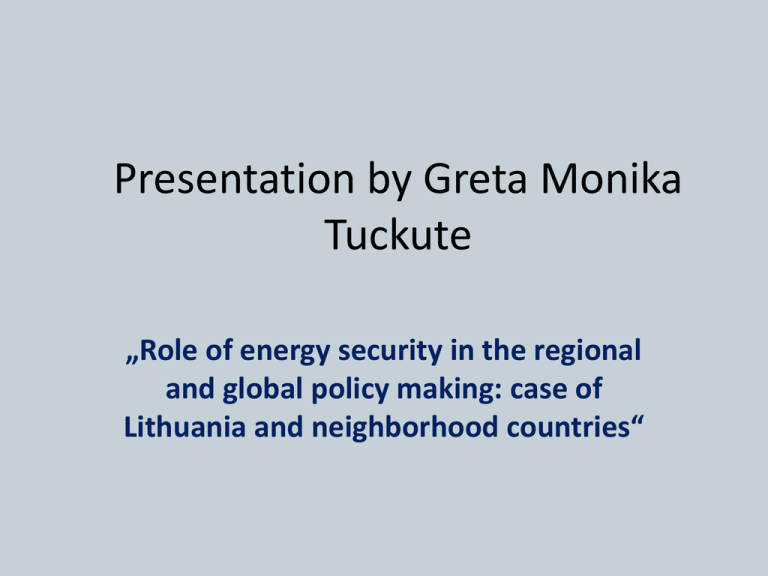
Presentation by Greta Monika Tuckute „Role of energy security in the regional and global policy making: case of Lithuania and neighborhood countries“ General overview • Lithuania‘s geographical situation decides its political and economic strategies. • Situated between the East and the West we get on the border between two influence zones. • As we have only very limited natural resources we highly depend on countries which can provide them. • At this moment Lithuania is fully incorporated into the energy system, which existed in the former Soviet union region. Main goal is to change the existing situation and launch the European system. The efforts have been done: • LNG terminal project; • Nuclear power plant project; • Implementation of the third energy package; • Electricity grids to Poland and Sweden (Lit Pol Link implementation until 2015 and and Nord Balt impelementation until the end of 2015); • Shale gas investigation. Why mentioned projects are important: • To be able to import and export energy resources connecting not only to Russian and Byelorussian systems. (For instance, few days ago Kaliningrad’s thermo power plant has declared the start of unplanned reparation, therefore the import from Kaliningrad will decrease, more easy would be if there were other options available). • In a consequence of the developement of alternatives a better negotiations position can be ensured EU role: • Encouragement of the Baltic Energy Market Interconnection Plan (BEMIP). • The BEMIP brings together in a coordinated way the (mostly existing) projects involving all countries around the Baltic Sea (Finland, Estonia, Latvia, Lithuania, Poland, Germany, Denmark, Sweden and as an observer, Norway) for the development of: • Internal market for electricity and gas; • Electricity interconnections; • New electricity generation capacity; • Gas diversification of routes and sources; • Oil. BEMIP map: BEMIP map 2: Lithuanian LNG terminal graphic: Third energy package: • The European Union's Third Energy Package is a legislative package for an internal gas and electricity market in the European Union. Its purpose is to further open up the gas and electricity markets in the European Union. The package was proposed by the European Commission in September 2007, and adopted by the European Parliament and the Council of the European Union in July 2009. It entered into force on 3 September 2009. • Core elements of the third package include ownership unbundling, which stipulates the separation of companies' generation and sale operations from their transmission networks,[1] and the establishment of a National Regulatory Authority (NRA) for each Member State,[2] and the Agency for the Cooperation of Energy Regulators which provides a forum for NRAs to work together. Lithuania’s situation: • Started implementation of the third energy package; • Lithuania has filed a lawsuit against Gazprom in the Stockholm arbitration tribunal seeking nearly 1.5 billion Euros from the Russian gas company, the Lithuanian Energy Ministry reported. • "The dispute is connected with the 5 billion lits ($1.448 billion Euros) that were overpaid for gas supplied to Lithuania as part of the corresponding contract,“ (quotation from the ministry). Regional overview: • Pressure on the region by the energy measures; • Principe of divide and rule – Lithuania is paying the highest price in the region; • Pressure on Lithuania by other economic measures – milk products export to Russia restrictions. Importance of neighborhood countries: • Polish role: • Highly important as it can determine the future of the development of the regional energy market – especially taking into account electricity market. • Depends from where Poland decides to purchase the electricity. • Belarus power plant in Astravec development, where do they plan to sell? • Kaliningrad’s nuclear power plant project? • Please feel free to contact: • greta@geopolitika.lt
